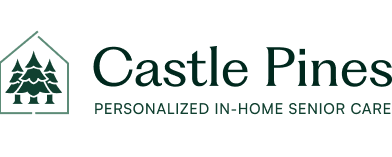It is a big duty to take care of a loved one all the time. Hiring a professional to care for elders or people with medical problems in their own home 24 hours a day, seven days a week gives many families peace of mind that their loved ones are secure, comfortable, and getting the care they need. But one of the most popular queries is, how much does 24/7 in home care cost per month? In this guide, we’ll talk about prices, what services are included, what affects rates, and how to keep costs under control.
Understanding the Types of In-Home Care
Before diving into costs, it’s essential to understand the types of in-home care available. Care services can range from occasional assistance to full time, round the clock support. Here’s a breakdown:
Personal Care Services
These services assist with daily activities such as bathing, dressing, using the bathroom, mobility, and meal preparation. While personal care is less medically focused, it is essential for seniors who need regular support. If you’re looking for reliable personal care services in South Denver, contact us today!
Home Health Care
Home health care is more focused on medical care. It could involve giving medicine, taking care of wounds, physical therapy, or keeping an eye on long-term health problems. Licensed nurses or therapists commonly give this kind of care.
24/7 or Round-the-Clock Care
This level of care offers ongoing help, usually to seniors who are very sick, have cognitive impairment, or are recovering from significant procedures. The caregiver may live in the home or work in shifts so that care never stops.
Understanding these types helps families determine what level of support is required, which directly affects cost.
How Much Does 24/7 In-Home Care Cost Per Month?
The cost of 24/7 in-home care varies depending on location, care needs, and the type of caregiver. On average, families can expect the following:
- Hourly Rates: $25–$50 per hour for non-medical caregivers; $35–$70 per hour for licensed home health nurses.
- Daily Cost: $600–$1,200 per day if a live-in caregiver is hired, including 24hour coverage.
- Monthly Cost: $18,000–$36,000 for full-time, round the clock care.
Please keep in mind that these are averages. Costs may go up if you need specialized medical treatment, such care for Alzheimer’s or Parkinson’s illness. If you’re wondering how much 24hour care for the elderly costs, it’s usually at the higher end of this range because they always need help.
Comparison to Other Care Options
- Cost of a care home per month: $4,000–$8,000, which may seem lower but lacks personalized attention.
- Private care home costs: Vary widely, $5,000–$10,000 per month, depending on amenities and care level.
- 24/7 home health care cost vs care homes: While in-home care can be more expensive, it offers familiar surroundings and personalized attention.
Understanding the breakdown of costs can help families make informed decisions.
What Services Are Included in the Cost of 24-Hour Care?
The monthly cost of 24hour care isn’t just for having someone present in the home. Here’s what typical 24/7 in-home care covers:
Personal Care
Personal care is a big part of 24hour in-home care, and it involves help with daily tasks. Caregivers aid with bathing, grooming, dressing, going to the bathroom, and moving around. They also help with cooking and feeding, making sure that your loved one gets the right amount of food throughout the day. This kind of help lets elders keep their dignity and independence while getting the care they need.
Monitoring of health
Another important part of 24/7 care is medical monitoring. Caregivers may deliver drugs, monitor vital signs, or give wound care and injections, depending on what the person requires for their health. This level of care makes sure that any medical problems are taken care of right away and helps avoid complications. Families can relax knowing that their loved one is being watched closely all the time.
Companionship
Companionship plays a vital role in 24 hour in-home care. Caregivers talk to and encourage seniors emotionally, watch over them to make sure they are safe, especially those with dementia, and help them with social activities to keep their minds busy and engaged. Regular socializing and spending time with others might help you feel less alone and better mentally and emotionally overall.
Household Support
Caregivers often do more than just take care of people and their medical needs. Some of these tasks are light cleaning, doing laundry, taking care of linens, shopping for groceries, and doing errands. Caregivers assist keep the home clean, orderly, and functional by doing these things. This lets seniors focus on their health and comfort without adding extra stress.
Specialized Care
Seniors with certain medical or cognitive issues get specialized care. This could be caring for people with dementia, helping people recover from Parkinson’s disease or strokes, or caring for people after surgery. These specialized services are meant to satisfy specific health needs and help with a safe and effective recovery. This makes the expense of 24 hour home care a good investment for families that want individualized care all the time.
What Affects the Cost of 24/7 In-Home Care?
Several factors influence the final monthly cost of care. Knowing these factors can help you budget appropriately.
Location
Costs vary significantly by region. Urban areas generally have higher wages and living costs, which affects home care prices. For example, the home nursing care cost in metropolitan areas is typically higher than in smaller towns.
Level of Care Needed
The complexity of medical needs directly affects cost. Routine assistance may cost less, while full time skilled nursing care is higher. Families often compare cost of home nurse with non-medical caregivers to determine the right fit.
Type of Caregiver
- Non-medical caregivers: cheaper, focus on daily living tasks
- Licensed nurses: higher rates, medically trained for complex needs
Care Schedule
- Live-in care may reduce hourly costs but includes room and board.
- Shift-based care involves multiple caregivers covering 24 hours, increasing total expenses.
Agency vs Private Hiring
- Agencies offer trained staff, insurance, and backup coverage but usually charge higher fees.
- Hiring privately may reduce the average cost of home care services, but families assume liability and management responsibilities.
Additional Costs
- Medical equipment and supplies
- Transportation
- Specialty services like physical therapy or dementia programs
By understanding these factors, you can plan and manage your 24/7 home health care cost more effectively.
Ways to Reduce the Cost
While 24/7 in-home care can be expensive, there are ways to reduce costs without sacrificing quality:
Combine Care Models
- Mix live-in care with part time caregivers
- Use adult day care programs for daytime hours
Explore Insurance Options
- Some long-term care insurance policies cover home care services
- Veterans and military benefits may provide financial support
Utilize Family Support
- Coordinate schedules among family members to reduce the need for 24-hour professional care
Tax Credits
- Some medical expenses, including home care, may be tax deductible
Reducing costs while maintaining high quality care is often a matter of creative planning and resource coordination.
How to Pay for 24/7 Home Care
Paying for round the clock care can feel daunting, but several options are available:
Out-of-Pocket
Most families pay for home care directly, which allows complete control over caregiver choice and scheduling.
Long Term Care Insurance
Policies often cover 24/7 home health care cost partially or entirely. It’s essential to review coverage limits and requirements.
Medicaid and State Programs
Medicaid may cover home health services for eligible seniors, especially if nursing-level care is required. Each state has different programs and qualification criteria.
Veterans Benefits
Veterans and surviving spouses may qualify for Aid & Attendance benefits to offset home care costs.
Combination Plans
Families often combine private pay, insurance, and state benefits to fund 24-hour care efficiently.
By exploring these options, families can make quality care more affordable and sustainable over time.
Conclusion
Giving your loved one 24/7 in-home care is an investment in their safety, health, and comfort. Families may plan for this important service without feeling overwhelmed if they know how much 24/7 in-home care costs each month. Costs depend on the sort of care, where it is, how skilled the caregiver is, and any other medical needs. However, with good preparation, great care may be affordable.
Castle Pines Home Care specializes in high quality, individualized care solutions, such as personal care services in Denver South, to make sure your loved ones get the care they need. Families can acquire 24-hour help while staying within their budget by looking at all of their alternatives, combining care models, and looking into financial resources.
FAQs
What is the average cost of 24-hour home health care?
The 24/7 home health care cost typically ranges from $18,000 to $36,000 per month depending on location, level of care, and caregiver type.
Does Medicare cover 24/7 in-home care?
Medicare generally does not cover long-term custodial care but may cover short-term skilled nursing or therapy services at home.
How does 24/7 care compare to a care home?
While how much does a care home cost per month can be lower, in-home care provides personalized attention, familiar surroundings, and flexibility.
Can I reduce the cost of 24-hour care at home?
Yes, combining family support with part-time professional care, using insurance benefits, and exploring local agencies can help reduce the cost of 24 hour care at home.
What services are included in home nursing care?
Services typically include personal care, medical monitoring, companionship, household support, and specialized care for chronic or acute conditions.





